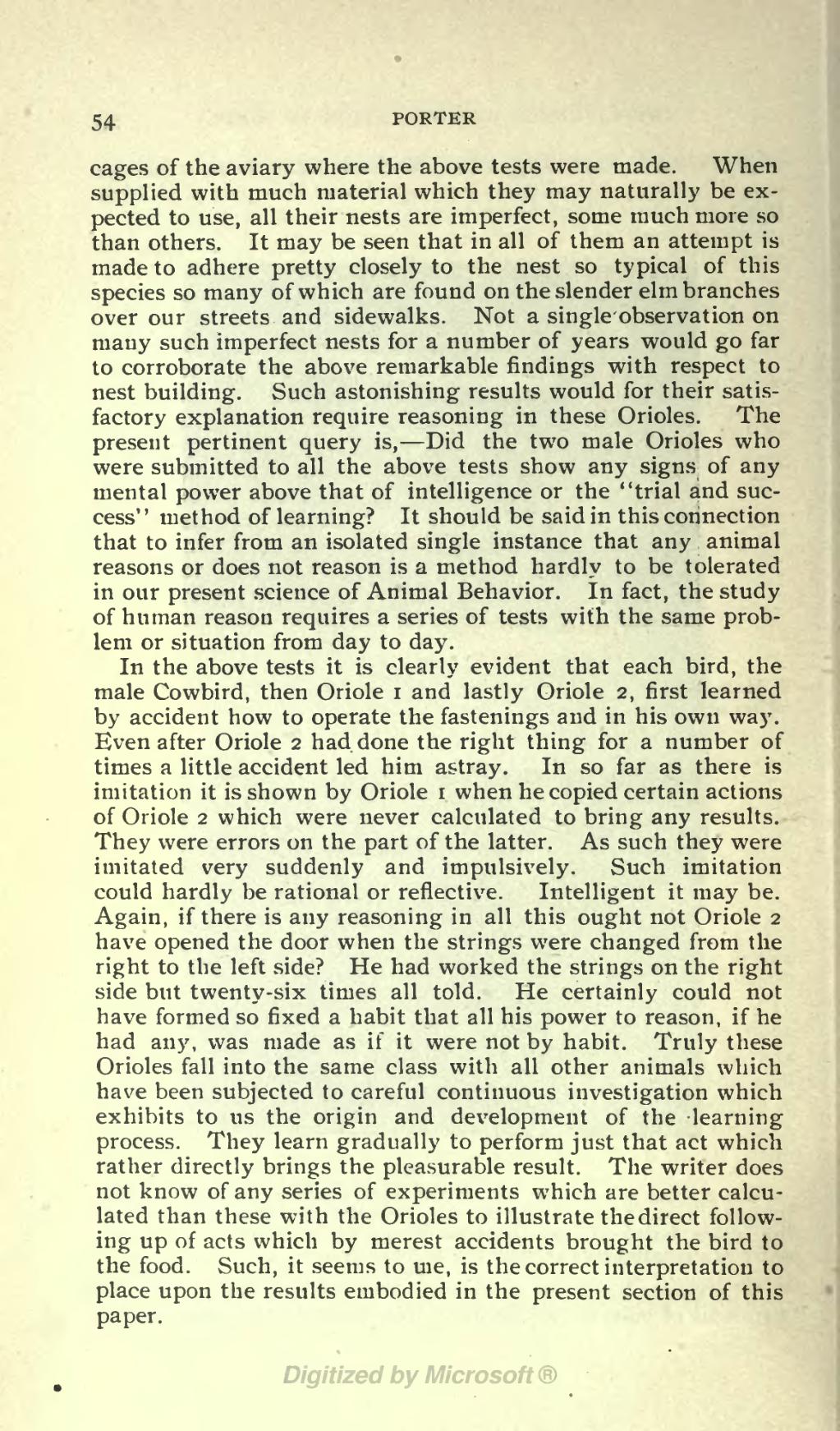cages of the aviary where the above tests were made. When supplied with much material which they may naturally be expected to use, all their nests are imperfect, some much more so than others. It may be seen that in all of them an attempt is made to adhere pretty closely to the nest so typical of this species so many of which are found on the slender elm branches over our streets and sidewalks. Not a single observation on many such imperfect nests for a number of years would go far to corroborate the above remarkable findings with respect to nest building. Such astonishing results would for their satisfactory explanation require reasoning in these Orioles. The present pertinent query is,–Did the two male Orioles who were submitted to all the above tests show any signs of any mental power above that of intelligence or the "trial and success" method of learning? It should be said in this connection that to infer from an isolated single instance that any animal reasons or does not reason is a method hardly to be tolerated in our present science of Animal Behavior. In fact, the study of human reason requires a series of tests with the same problem or situation from day to day.
In the above tests it is clearly evident that each bird, the male Cowbird, then Oriole 1 and lastly Oriole 2, first learned by accident how to operate the fastenings and in his own way. Even after Oriole 2 had done the right thing for a number of times a little accident led him astray. In so far as there is imitation it is shown by Oriole 1 when he copied certain actions of Oriole 2 which were never calculated to bring any results. They were errors on the part of the latter. As such they were imitated very suddenly and impulsively. Such imitation could hardly be rational or reflective. Intelligent it may be. Again, if there is any reasoning in all this ought not Oriole 2 have opened the door when the strings were changed from the right to the left side? He had worked the strings on the right side but twenty-six times all told. He certainly could not have formed so fixed a habit that all his power to reason, if he had any, was made as if it were not by habit. Truly these Orioles fall into the same class with all other animals which have been subjected to careful continuous investigation which exhibits to us the origin and development of the learning process. They learn gradually to perform just that act which rather directly brings the pleasurable result. The writer does not know of any series of experiments which are better calculated than these with the Orioles to illustrate the direct following up of acts which by merest accidents brought the bird to the food. Such, it seems to me, is the correct interpretation to place upon the results embodied in the present section of this paper.
